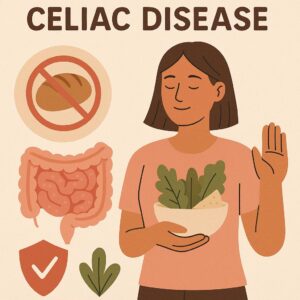Celiac disease is an autoimmune condition where eating foods with gluten—a protein found in wheat, barley, and rye—causes the immune system to attack the lining of the small intestine. This damages the gut and makes it harder to absorb nutrients from food.
It’s not a food allergy or a fad diet—it’s a serious, lifelong condition that requires a strict gluten-free diet to stay healthy.


